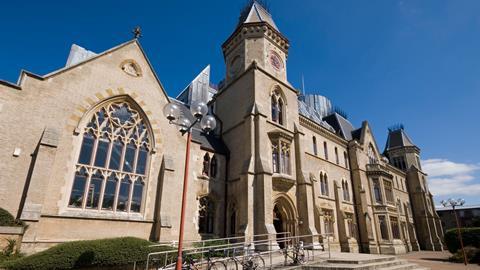It’s true: there comes a time when Crown court judges start to look young. But, as I was reflecting on the phenomenon at Wood Green, North London, the other day, it occurred to me that the judge eying me scribbling away on the press bench might be reaching the opposite conclusion about court reporters. Fair enough: it’s a good 25 years since I last spent any time on a Crown court press bench.
Over those decades, a great deal has changed beyond my own ageing. In a day spent watching the quotidian workload in courts 4 and 5 - ‘For mentions’, custody time limit extensions, a sentencing hearing - I noticed both physical and cultural changes. Obviously there were the post-Covid touches: Perspex screens and the now ubiquitous video kit. Another change was the glassed-in dock, which was still a rarity in my reporting days, as were curtains around witness boxes.
The seats were certainly more comfortable than the buttock-punishing press benches I remember. Not that there were any press benches in courts 4 or 5 - just public seating, which on two occasions I shared with defendants’ mother. The lack of press facilities is understandable: these days no local newspaper or agency can spare reporters to cover hearings that are not guaranteed to generate a story. And, unless they feature a celebrity or a particularly notorious crime, the few details that can be reported from a pre-trial hearing do not fall into that category.
Indeed the clerks seemed surprised to see a journalist at all. ‘We were just saying it’s a shame that you’ve turned up this week of all weeks,’ one observed. ‘Or are you here because of the strike?’ I confessed that I was there mainly to report on how the wheels of justice kept turning on day one of the barristers’ indefinite boycott of new legal aid work.
Mostly, at the workaday level of pre- and post-trial business, they did. But the strike was a constant theme throughout the day.
First up in Court 5 was a mention hearing which was also to fix an appeal. His Honour Judge Karim Ezzat heard that the defendant was privately represented and therefore there was ‘no issue in terms of strikes’.
But over in Court 4, listed for the first day of a trial for GBH, it was a different story. It was immediately apparent that the trial was not going ahead. Counsel for the CPS told His Honour Judge Noel Lucas that he had been ready to proceed but that he had been instructed that ‘because of the strike action by the bar there would be no representation for the trial today'. Instead, it has been indicated that 'someone from the defence solicitors would be stepping in'.
'Someone from the defence solicitors' turned out to be a paralegal and trainee solicitor, who appeared on screen to direct the judge's attention to a bail application, which, along with the custody time limit, was the only matter that the court could deal with. The judge noted that the defendant had been in custody for almost a year, since 11 September 2021. ‘I have some sympathy with the suggestion that further lengthy delay might constitute a change in circumstances.’ However he declined to grant bail and extended the custody time limit to 20 February 2023.
Next was an application for bail on behalf of an 18-year-old defendant on ‘county lines’ drug charges. Again, no defence counsel was in court, but a solicitor appeared on screen to point out the potential flimsiness of mobile phone location evidence and the unfairness of incarcerating a young man with no previous convictions. Observing that ‘In light of the bar’s action it is likely to take some considerable time for this case to be resolved,’ the judge granted bail with conditions.
'Please speak to his solicitors and stop him mixing with the wrong people,' the judge advised the defendant's mother. 'Thank you very much, Your Honour,' she replied.
Defence counsel did appear in the next matter, a sentencing hearing following a conviction of an 81-year-old man on multiple counts of sexual offences over several decades. 'No difficulties?' the judge asked before the defendant was produced. 'I took the decision not to interfere,' counsel said.
'You're a very wise man, if I may say so,' the judge responded.
After that grim business, it was back to Court 5 for more preparatory hearings, with defendants appearing mainly by video. Here, the impression was of a judge bending over backwards to make sure defendants understood what was going on - on a couple of occasions imploring them to make contact with their solicitors before saying something they might regret. Only one defendant showed any interest in the bar dispute, inquiring of the judge: 'Can I ask, are they on strike today?' On being told yes, he tried to attempt what sounded like the opening moves of a plea-bargain - to be firmly but politely rebuffed.
Inevitably, a casualty of such exchanges is the majesty of the court. 'Can I see who I'm speaking to?' one defendant, visible only as a torso on the screen, inquired. 'You're speaking to the judge. I'm the one in the red sash,' Ezzat replied. Somehow I can't imagine the late Judge Ian Starforth Hill, who presided in a terrifying manner over Winchester Crown Court in my reporting days, being quite so laid back.
So, some things have changed for the better. But, until a way can be found to pay decent legal aid rates it is hard to be optimistic about the system as a whole.





































No comments yet